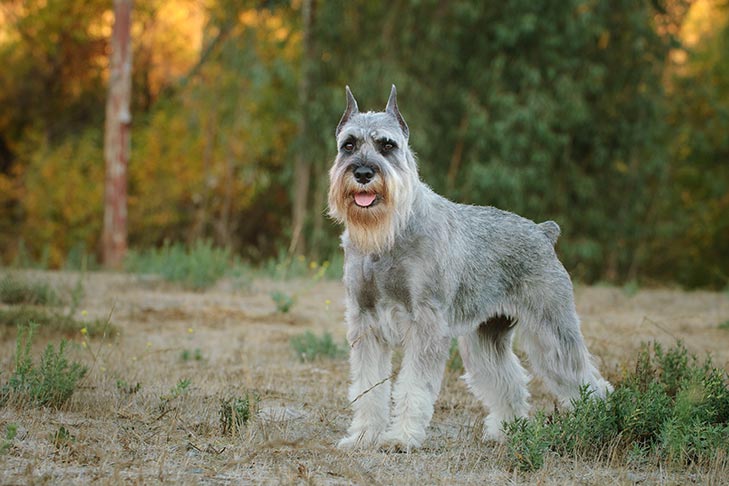The Miniature Schnauzer: A Misunderstood Marvel
:strip_icc()/UpcloseofSchnauzer-8141244ead3f4fbda3bedb2b68b91a7b.jpg)
The Miniature Schnauzer, often affectionately (but inaccurately) dubbed the “Fat Schnauzer,” is a playful, loyal, and intelligent breed with a rich history. Despite their nickname, these dogs are not predisposed to obesity. Let’s delve into the fascinating world of the Miniature Schnauzer, dispelling myths and exploring how to keep them healthy and happy.
A Storied Past
Originating in 19th-century Germany, Miniature Schnauzers were initially bred as working dogs. Their compact size made them ideal for ratting, while their keen senses and agility made them effective watchdogs. Over time, their adaptability and friendly nature led to their popularity as beloved family companions.
A Closer Look: The Miniature Schnauzer’s Unique Traits

The Miniature Schnauzer is instantly recognizable by its distinctive appearance. Their wiry coat, which comes in a variety of colors including salt and pepper, black and silver, and black, requires regular grooming to maintain its texture and prevent matting. Beneath their rugged exterior lies a playful and affectionate personality. They are highly intelligent and eager to please, making them relatively easy to train.
Dispelling the “Fat Schnauzer” Myth

One of the most common misconceptions about Miniature Schnauzers is that they are prone to obesity. While it’s true that they have hearty appetites, they are not inherently overweight. A healthy weight range for a Miniature Schnauzer is between 11 and 20 pounds, depending on their size and gender. Obesity can lead to a host of health problems, including joint issues, diabetes, and heart disease.
Keeping Your Schnauzer Healthy and Happy
To ensure your Miniature Schnauzer lives a long and healthy life, consider the following tips:
Diet and Nutrition:
- High-Quality Dog Food: Opt for a premium dog food formulated to meet the specific nutritional needs of small breed dogs.
- Portion Control: Avoid overfeeding, as it can lead to weight gain. Consult your veterinarian to determine the appropriate portion size for your dog’s age, weight, and activity level.
- Treat Moderation: While treats can be used for training and bonding, they should be given in moderation to avoid excessive calorie intake.
Exercise and Mental Stimulation:
- Daily Walks: Regular walks help maintain a healthy weight and provide mental stimulation.
- Playtime: Engage in interactive play sessions with your Schnauzer using toys like balls, frisbees, or puzzle feeders.
- Training: Training sessions not only teach your dog obedience commands but also provide mental exercise.
Grooming:
- Regular Brushing: Brushing your Schnauzer’s coat several times a week helps remove loose hair and prevents matting.
- Professional Grooming: Professional grooming sessions are essential to maintain your dog’s coat, nails, and overall appearance.
Veterinary Care:
- Annual Check-ups: Schedule regular veterinary check-ups to monitor your dog’s health and address any potential issues.
- Vaccinations: Keep your Schnauzer up-to-date on vaccinations to protect them from infectious diseases.
- Dental Care: Regular dental care, including brushing your dog’s teeth and professional dental cleanings, is crucial for oral health.
The Miniature Schnauzer: A Loyal Companion

The Miniature Schnauzer is more than just a breed; they are loyal companions who thrive on human interaction. They are particularly well-suited for families with children, as they are gentle and patient. However, it’s important to supervise interactions between children and dogs to ensure safety.
In conclusion, the Miniature Schnauzer is a wonderful breed for those seeking a loyal, intelligent, and affectionate companion. By providing them with proper care, nutrition, exercise, and veterinary attention, you can ensure a long and happy life for your furry friend.
